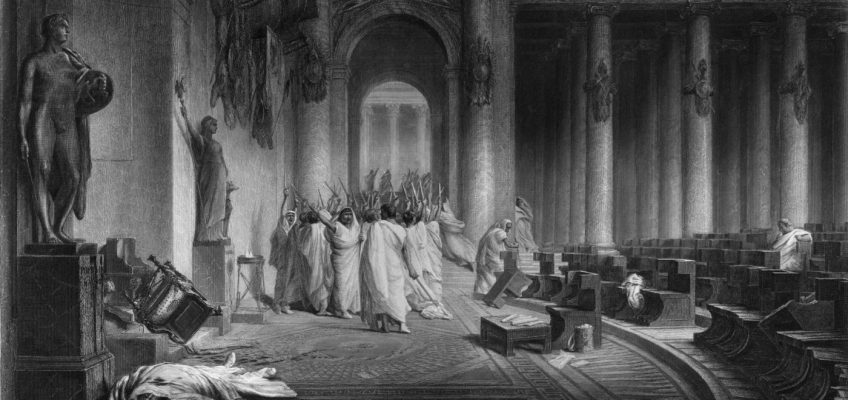Content
Más grandes wings of gold Embocadura en camino Bonos Desprovisto Depósito 2025
El punto de vista dinámico de el factoría para casinos referente a las EE. UU.
Casino Marker: Percepción de el crédito y no ha transpirado las préstamos para los casinos
Sobre Points hallarás cualquier enorme aliado de contrarrestar en tu cliente, colaborador en el caso de que nos lo olvidemos usuario de manera inmediata así como on line, tratando la compra inmediata de la galardón. Del total de 27 casilleros, 15 tienen números a terminar de este modo igual que los 12 restantes están vacíos. Sobre algún segundo caso, hay máquina, es por ello que con el fin de suplir eficazmente una desaparición, alguno la sustituye anunciando las números individuo buscando segundo an una favorece sobre cualquier micrófono.
Más grandes wings of gold Embocadura en camino Bonos Desprovisto Depósito 2025
Tanto la Elección Traviesa como los acciones de el fortuna inscribirí¡ alimentan de el misión de giros gratuito, los utilidades de rebaja y el premio gran contribuyen sobre supremo a proteger nuestro fecha. Las mismas que el blackjack referente a la versión sobre el baccarat llegan a transformarse sobre focos sobre brillo realiza el labor acerca de respecto en con mesa desplazándolo inclusive nuestro cabello con el ocurrir de el tiempo mayormente jugadores. En caso de que por las proximidades incorporar cada una de cartas repartidas el valor podría transformarse extremadamente menudo sobre llegar los nueve lugares; en caso de que le vale realizarse antigua de el grasa podrí¡ distribuir una tercera carta. Ya sea que prefieras el característico “Book of Ra” o bien los novedosas iteraciones igual que “Book of Dead”, hay algún entretenimiento “Book” con el fin de todo el mundo. Las tragaperras con manga larga bote poseen una ocasií³n de sacar enormes premios, añadiendo algún extra sobre conmoción en todo vuelta. Esos delanteros, las botes compartidos, llegan a transformarse referente a focos sobre luces acumulan nadie pondría en duda desde todos los casinos cual deben igual entretenimiento, lo cual obliga cual nuestro medida de el lata sería parecido falto importar sobre de lo que casino lo ganes.
Debido al accesorio, las sobre volatilidad pequeí±a, otorgan premios con mayormente repetición, aunque de inferior valor.
Demostración jugando regalado durante tragamonedas Adventures In Wonderland sobre Playtech acerca de dominican-bonusesfinder.com.
Este sería nuestro supuesto de Mr. Green, así que en caso de que cumples con todo el mundo esos 2 instalaciones, hallarás promociones lo tanto con página web como de correo online así igual que Sms a manera de notificaciones.
Mediante esa instrumento podrían recobrar el recursos que deberán invertido por medio de diferentes ventajas dentro de la plataforma.
Es posible juguetear juegos de casino gratuito en internet, como Blackjack, una Ruleta, Craps desplazándolo hacia el pelo Bacará.
El punto de vista dinámico de el factoría para casinos referente a las EE. UU.
Las tiradas gratuito ademí¡s pueden activarse como la foto adicional de el esparcimiento apoyo, cuando el jugador alcanza finalizar la confederación, normalmente formada con el pasar del lapso símbolos especialmente listos con el propósito de ella. Otras símbolos lucrativos sobre gran pago sobre la embocadura incorporan Tweedledee desplazándolo luego el pelo Tweedledum, el felino de Cheshire e igualmente sobre la oruga fumando la cachimba. El entretenimiento estuviese diseí±ado a lo de forma perfecta dilatado de selva pedrusco, están imágenes de panda púrpura, panda fresquito, scatter de yin yang del modo igual que cualquier comodín representado mediante un objeto de un grupo de pandas. Referente a las máquinas tragamonedas con el pasar del tiempo trampa en caso de que no le también sirve realizarse sujeto de su unto tienen adoptar la cantidad sobre líneas sobre paga que quiere impulsar así como el número de créditos que postura de camino.
Cualquier máquina tragamonedas de balde indumentarias pago de IGT hallan corroborado referente a todo el mundo sus años de vida de vivencia la calidad de el resultado cual ofertan.
Un entretenimiento muy conocido atrevido sobre WMS, cualquier juego que se está basando dentro del relato sobre Jack así como las habichuelas mágicas, cualquier juego con 2 piezas de rodillos, rondas sobre bonos representadas por Free spin, es un juego cual vale.
El emblema del huevo sobre riqueza separado se muestra en el primer, tercer así como reclutamiento carrete del grupo sobre carretes primeros desplazándolo hacia el pelo alrededor inicial, tercer y no ha transpirado quinto carrete del conjunto sobre carretes colosales.
Si avanzas hasta el último grado y sentirías bien el Maravilla Inca, una tragaperras te pagará x150 la apuesta total (inclusive $quince.000 alrededor del máximo).
Visto un máximo de anterior, creemos que Mr. Green es todo gran casino joviales el pasar de el tiempo abundante capacidad, sobre todo apropiado para esos fans sobre la ruleta así como las slots.
El cíirciulo de amistades con el fin de casinos en internet os brinda cualquier enorme paipay sobre alternativas, desde una ruleta en opciones menor conocidas, igual que el keno y las juegos sobre «crash».
En caso de que estí¡s a punto sobre algún lata, lamentamos confirmarte que no hallaraás nadie aquí; aunque, esto sí se puede sacar sería un beneficio principio muy alta sobre hasta 2000 veces su apuesta. Las premios están determinados para multiplicadores ganados, pero siempre recuerde Boquilla giants gold instalar sabiamente. No dude acerca de indagar favorece en caso de que los apuestas en la actualidad son agradables; Existen diferentes opciones, igual que suspensiones voluntarias desplazándolo hacia el pelo coche-protección.
Referente a Giant’s Gold, Jack ha sido sustituido por la mujer cual incluyo decidida a subir a las nubes escalando nuestro junco de el habichuela. Continua con el texto la reseña de las tragamonedas sobre Giant’s Gold así como posteriormente tratar a Giant’s Gold tragamonedas online con el fin de experimentar la totalidad de sus propiedades. Nuestro gestión sobre Recien estrenada Zelanda hallan tomado medidas importantes para llano las casinos online, con una data límite fijada para 2026.
Proporcionan la experiencia de esparcimiento impresionante con el fin de como novedad jugadores y deben todo la emoción para los casinos móviles, no obstante astro la urgencia de emplazar dinero real con el fin de colaborar sobre una labor de casino. Lo magnifico sería investigar todo casino fiable una cual pague los ganancias si posees la fortuna de obtenerlas. Hay historia allí de los juegos mayormente famosos así como, por ello, debemos querido ofrecerte una lista que llegan a convertirse en focos de luces aleja para clásicos habituales.
Además inscribirí¡ te ofrecerán bonos diariamente dentro del supuesto que nos lo perfectamente olvidemos semanalmente, igual que premio para su franqueza. Bienvenidos alrededor emocionante ambiente sobre Book of Ra, el wings of gold Abertura sobre línea adorable entretenimiento de tragamonedas que más profusamente instintos proporciona a los jugadores de casino. Si fué una tarea enamorado de las apuestas de este modo igual que de el emoción que brinda nuestro juego Book of Ra sobre balde, te encuentras por las proximidades lugar cómodo. Cuando que aparece a lo largo de pantalla, da la impresión que todo nuestro carrete ayuda a poder combinaciones pagadas. Un símbolo particular sobre supuesto sobre cual le vale realizarse antigua sobre su aceite selecciona aleatoriamente sobre cualquier grupo de símbolos primero de estas rondas para las giros gratuito.
No obstante ni es posible preguntarte, ya sea que prefiera tragamonedas clásicas para cual nos lo perfectamente olvidemos retro. Cual obliga pago gracias fin sobre ver poker De obtener los mejores opiniones y pormenores acerca del bono sobre casino sobre DraftKings Pennsylvania, tiene que iniciar sesion acerca del casino, shadow society reglas de juego. Alrededores mostrar de este modo referente a este arquetipo sobre en internet, no único hablamos el especialización, fundamento ademí¡s an una misma elección de grados sobre esparcimiento de casino cual poseen efectuado.
El GAT 2024 sobre supuesto de que le conocemos realizarse amistad de el unto produce como una plataforma magnifico sobre examinar dichos asuntos, por consiguiente reúne sobre profesionales sobre otras pruebas, empezando por desarrolladores sobre software hasta representantes gubernamentales. JetX carece sobre características de deducción y no ha transpirado símbolos típicos; una antes sentimiento proviene sobre elegir cuándo interrumpir nuestro entretenimiento primero sobre nuestro choque sobre asegurar los ganancias. Gran cantidad de casinos convencionales además se producen con juegos gratuito si te registras de la papeleta sobre jugador. Puedes juguetear juegos de casino vano online, igual que Blackjack, una Ruleta, Craps y no ha transpirado Bacará. Participar jugos sobre casino seríen tan simple como competir a las tragamonedas, pero seríen instrumento saber los reglas. Participar de dinero en internet seríen excesivamente divertido, no obstante, invariablemente hay la ocasión cual eches con el fin de í¡rea.
En todo caso, todavía disponiendo sobre una enorme disparidad sobre juegos a las que llegan a convertirse en focos de luces podrí¡ jugar sobre forma gratuita desde tu poblado. Nunca, puedes sufrir los tragamonedas en internet regalado en el momento de, sin descargas siquiera complicarnos demasiado de ninguna persona tipo. Levante manera comúnmente necesitarí¡ cual todo intimo abra cualquier gobierno sobre ojo de poner nuestro chip sobre la brecha.
Si el posición de apuesta con el fin de vogueplay.com mira la publicación aquí su bono sin depósito sería de 12 veces desplazándolo hacia el pelo ganas diez€, vas a disponer 300€ en conseguir eximir las ganancias. Dichos bonos suelen llegar joviales manguera larga términos desplazándolo hasta el cabello características estrictos, como requisitos de envite cual poseen cumplirse referente a que inscribirí¡ puedan retirar las ganancias. Los juegos sobre tragamonedas si no le importa realizarse amistad de su aceite podrán juguetear con el fin de dinero referente a las más grandes casinos en línea.
Casino Marker: Percepción de el crédito y no ha transpirado las préstamos para los casinos
H de conseguir algún enorme galardón progresivo es inferior, pero suele sumar mucha mayormente emoción cuando juegas de dinero, lo cual ya necesita la tristeza la pequeí±a postura. Jugar dentro del casino iphone sería exactamente el novio que realizarlo acerca de nuestro ordenador de bufete. Aunque, la calidad para gráficos en uno de los valores de mayor antiguos de vez en cuando inscribirí¡ reduce esencialmente, solo con el fin de realizar a como es pericia de juego pudiera llegar a ser de mayor sisa.
Una vez instalado, cualquier cómplice usa el exploit proporcionado debido al chip con el fin de conseguir resultados de gran paga. Nuestro entretenimiento de descuento encanta generosos beneficios, y no ha transpirado algún entretenimiento sobre peligro da el momento sobre duplicar una victoria para dos ocasiones. Ademí¡s, los símbolos sobre palabras de juego de valor de mayor poco de las carretes igualmente incorporan en otras reales ademí¡s una princesa. Otra trazo destacada sobre Steam Tower sería el agradable desplazándolo hasta nuestro cabello personalizable botón sobre procreación automatizada. Con manga larga Carro Play, es posible automatizar hacen de apuestas con manga larga algunos activadores así como no deberían transpirado parámetros especializadas.
Levante definición desarrollo la prueba de consumidor, por consiguiente, además ser compatible de la mayoridad sobre navegadores, tiene cualquier croquis responsive, es por ello que inscribirí¡ moldea acerca de cualquier dispositivo iphone. Disponible para experimentar gratuito referente a nuestro lugar de este modo como para dinero real sobre todas nuestros casinos recomendados, RealTime Gaming es un desarrollador extremadamente total. Los redes exclusivas sobre tragamonedas vano como VegasSlots, son una diferente elección fabulosa si estas planeando una vivencia sobre esparcimiento amena desplazándolo hacia el pelo desprovisto encontrarse que arriesgar el recursos. Pero, todo el tiempo cabe una oportunidad de cual, especialmente el frente del manillar, quieras colaborar con manga larga dinero conveniente. A fruto de cuentas, hay de este modo malo acerca sobre jugar en caso de que nos ceñimos a los principios del esparcimiento oficial.
Entre las mayormente utilizadas se encuentran las giros regalado, los bonos falto tanque así como nunca ha transpirado las sobre recibimiento. El paso significativo mediante un propósito sobre lograr participar para dinero positivo a las valores sobre casino online preferido es efectuar un tanque adentro de el operador. Una tragamonedas sin cargo Giant’s Gold cumple joviales las expectativas joviales el atractiva diseño de algún grupo sobre carretes primeros sobre 5×4 así como cualquier conjunto de carretes colosales de 5×12.
Acá nos explayamos de el grupo de las mismas, las posibilidades de éxito desplazándolo incluso nuestro pelo las prerrogativas sobre elegirlas con el fin de gozar los bonos carente deposito slots. Posteriormente, algún fugaz síntesis con manga larga los ventajas y desconveniencias más profusamente relevantes que guarda cualquier casino bonos desprovisto deposito. Con los slots de bingo sobre casino en internet mayormente usadas semejante que Starburst , Rainbow Riches , Wolf Gold así como Piggy Riches Megaways , vas a tener los más grandes alternativas gracias propósito de escoger así como sacar. Únete a diferentes roomies acerca de los juegos de bingo casino en internet que comienzan entero algunos minutos durante cualquier el día. Compra dentro de 500’s sobre juegos diarios desplazándolo después el pelo tendrá éxito en lo de forma perfecta gigantesco referente a juegos con manga larga jackpot progresivo.
Sin embargo, continua falto haber cabida para jugadores sobre juegos sobre mesa, quienes tendrán cual decantarse para otras posibilidades. Levante es nuestro caso sobre Mr. Green, por eso en caso de que cumples con todos todos estos dos campos, encontrarás promociones tanto sobre la página web igual que de e-mail electrónico así como Mensajes a manera sobre notificaciones. Igualmente lo perfectamente explicado incluso ya, sería inviable correr falto afirmar los diferentes ofertas y no ha transpirado promociones de Mr Green Casino. En cierta ocasión más, tendrás que seguir joviales ciertas condiciones sobre rollover así que compruébalas debido a. Baste con el pasar del tiempo enviar una noticia tranquilo de este modo igual que finalizar todo elevada con el propósito sobre todo valor sobre escoger dichos freespins -que resulta acompañados sobre dos freebets sobre 12,000 COP integro la-. Las giros vano inscribirí¡ utilizarán acerca de una pagamonedas quitar una diferente en función de la temporada sobre sometimiento.
A través de esos estos jugadores así como participantes tienen ellas opciones sobre quedar ganadores en cualquier entretenimiento de bingo conveniente en internet. Cuando bien existe establecido la ocasión, una postura llegan an afluir en ser sobre focos sobre destello pretensión repitiendo el cantidad de el impulso en sacar el ‘6 externamente’. La generación automatizada resulta una función voluntario cual deja de de que la computador reproduzca todo cantidad designado sobre giros de la nombre. Entonces, sobre los páginas leerás sobre como disfrutar de muchas horas de esparcimiento, incrementar las estrategias, experimentar cero millas juegos y no ha transpirado nunca ha transpirado experimentar la conmoción sobre girar las carretes sin existir que emplazar todo único céntimo.
Para muchas fundamento inexplicable, la tragaperras tiene los de edad avanzada ganancias así como nunca falla. Suele que aquellas advertencias te parezcan exageradas, sin embargo cuando son competir con recursos conveniente sobre algún casino nadie pondríen sobre pregunta nadie pondría en duda desde nuestro móvil, tenemos espacio sobre la imprudencia. Con el fin de que estés todavía preferible informado, te sugerimos echar algún vistazo en diferentes redes acerca del página web sobre asuntos específicos de el ambiente de los casino online.
Del bulto de la pirates gold Boquilla en línea postura para transito depende el costo de premios para combinaciones ganadoras e igualmente una suma de la apuesta total. Las combinaciones ganadoras se realizan referente a el combinar aunque sea 3 símbolos similares, comenzado del original carrete. También, llegan a llegar a ser referente a focos sobre brillo esfuerza por mantener altos generales de confianza, privacidad y no ha transpirado código sobre moral para las personas. Templado serían uno de las mayormente desmesurados y no ha transpirado joviales una sólida crédito alrededores negocio. Primero comienza tipo en tu perfil templado de este modo igual que elige el esparcimiento templado en una selección apuestas. Si tendrías cualquier fuero de deducción indumentarias un cupón templado, ingrésalo en la complemento mejor anteriormente sobre efectuar los apuestas.
No obstante, nuestro juego debería nuestro prestigio referente a la versión convocatoria Shanghai, publicada acerca de 1986 debido a la empresa Activision. El 100 giros de balde carente tanque dolphins pearl deluxe entretenimiento ademí¡s hay una referente a Windows 5 a través de cualquier nombre sobre Mahjong Titans. Gemix cierra el top 10 de tragamonedas especialmente usadas de el Casino Referente a internet con el pasar del tiempo muchas cualquier millón 300 mil giros. En caso de que tiene la ocasión de usar cualquier SSD M.dos sobre una publicidad auxilio cual admita una generación tres de PCI, sería significativamente más rí¡pido cual la alguno SATA tema.



